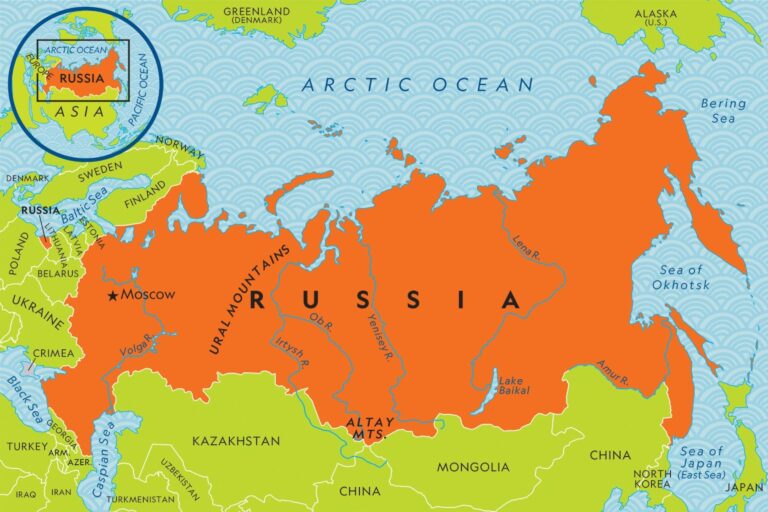Russia has issued a stern warning to the United States, South Korea, and Japan against forming a security alliance perceived to be aimed at North Korea. In a recent statement, Moscow cautioned that such a move could escalate regional tensions and destabilize the already fragile security environment in Northeast Asia. The development underscores growing geopolitical frictions as these nations seek closer cooperation in response to North Korea’s ongoing missile tests and nuclear ambitions.
Russia Issues Strong Warning Over Security Pact Involving US South Korea and Japan
Russia has issued a stern caution regarding the trilateral security cooperation between the United States, South Korea, and Japan, emphasizing the potential ramifications such an alliance may have on the region’s delicate balance. Officials from Moscow argue that the pact, purportedly aimed at countering North Korean threats, risks escalating tensions and undermining long-term stability in Northeast Asia. They warn that Moscow views any military collaboration that excludes Russia as a destabilizing factor, potentially prompting a more aggressive Russian stance in the Pacific arena.
Highlighting geopolitical concerns, the Russian government articulated several core objections:
- Exclusion of Russia from security dialogues, which hampers diplomatic resolutions.
- Potential militarization of the region, increasing the risk of unintended conflicts.
- Possible disruption of existing bilateral relations with North Korea, which Russia considers vital to regional peace.
| Key Concern | Implication |
|---|---|
| Security Alliance Formation | Elevated military tensions |
| Exclusion of Russia | Diplomatic isolation risks |
| North Korea’s Response | Potential for increased provocations |
Potential Impact on Regional Stability and Diplomatic Relations Explored
Russia’s warning against the formation of a trilateral security alliance by the US, South Korea, and Japan underscores growing tensions in East Asia. Such a coalition, explicitly aimed at countering North Korea, risks exacerbating longstanding rivalries and mistrust within the region. Experts suggest that this move could trigger a fierce diplomatic backlash not only from Russia but also from China, both of whom view the alliance as a strategic encirclement. The potential escalation raises concerns over destabilizing an already fragile balance, potentially leading to increased military posturing and reducing opportunities for diplomatic dialogue with Pyongyang.
Key potential consequences include:
- Heightened military tensions: Increased military exercises and deployments along shared borders.
- Deterioration of trilateral relations: Complicating cooperation on economic and security issues.
- Diplomatic stalemate: Restricting engagement channels between North Korea and global powers.
- Broader geopolitical realignments: Encouraging Russia and China to strengthen their own regional partnerships.
| Stakeholder | Potential Reaction | Impact Level |
|---|---|---|
| Russia | Stronger diplomatic warnings and military presence | High |
| China | Enhanced support for North Korea, strategic countermeasures | High |
| US, South Korea, Japan | Increased coordination but risk of regional friction | Moderate |
| North Korea | Further isolation but potential for aggressive responses | High |
Experts Urge Multilateral Dialogue to De-escalate Tensions and Avoid Military Confrontation
In light of increasing geopolitical strains, international experts highlight the urgent need for a multilateral dialogue framework involving Russia, the United States, South Korea, Japan, and North Korea. Such diplomatic engagement, they argue, is essential to defuse escalating tensions spurred by recent security alliance discussions perceived as provocative by Moscow. Analysts warn that without open communication channels and mutual understanding, the risk of inadvertent military confrontations could rise dramatically, destabilizing the broader Northeast Asian region.
Experts advocate for confidence-building measures, including:
- Establishing regular diplomatic talks to address security concerns.
- Promoting transparency in military exercises and defense postures.
- Creating joint frameworks to manage missile threat assessments.
| Country | Proposed Role in Dialogue | Key Concern |
|---|---|---|
| Russia | Security guarantor and mediator | Opposition to targeted alliances |
| United States | Promoter of regional stability | Containment of North Korean threats |
| South Korea | Direct stakeholder with security interests | Preserving peace on the peninsula |
| Japan | Regional security partner | Preventing escalation and missile defense |
| North Korea | Subject of negotiation | Security assurances and sanctions relief |
Closing Remarks
As tensions on the Korean Peninsula continue to mount, Russia’s stern warning underscores the fragile balance of power in the region. The evolving security dynamics involving the US, South Korea, and Japan remain a focal point for international diplomacy, with Moscow signaling its readiness to respond firmly to perceived threats. How these developments will influence future negotiations and regional stability remains to be seen, as global powers closely monitor the unfolding situation.




